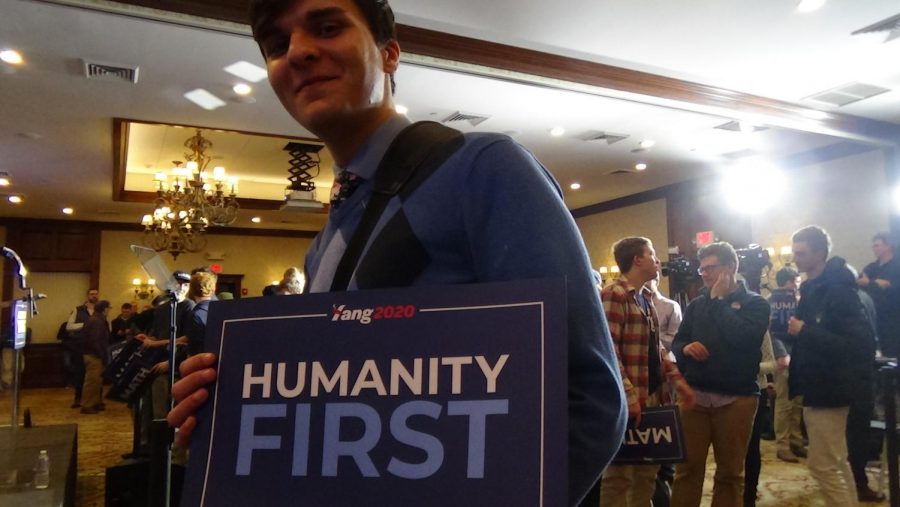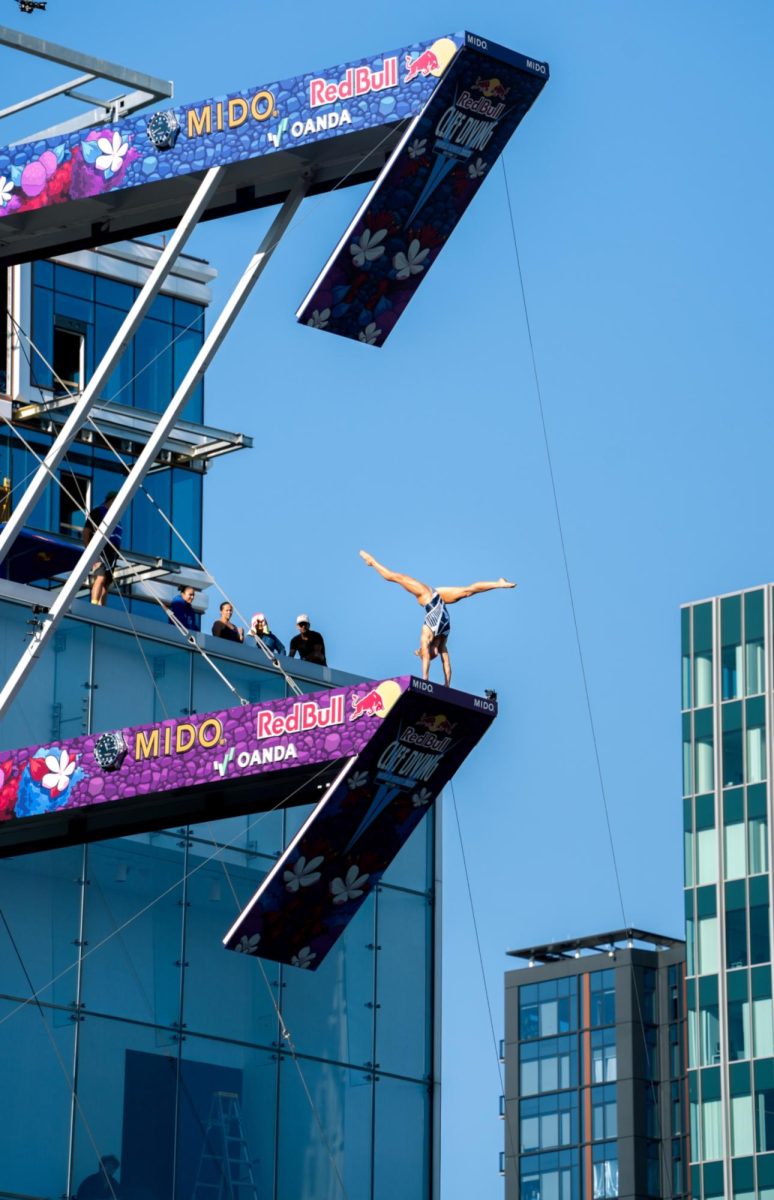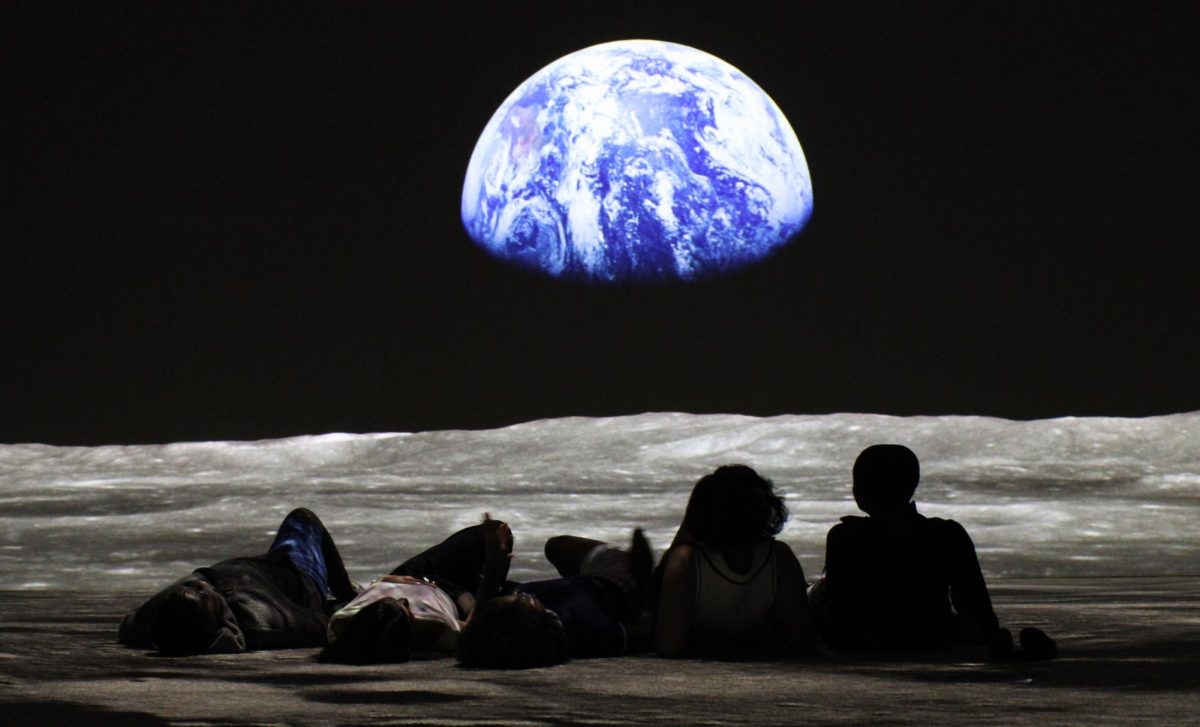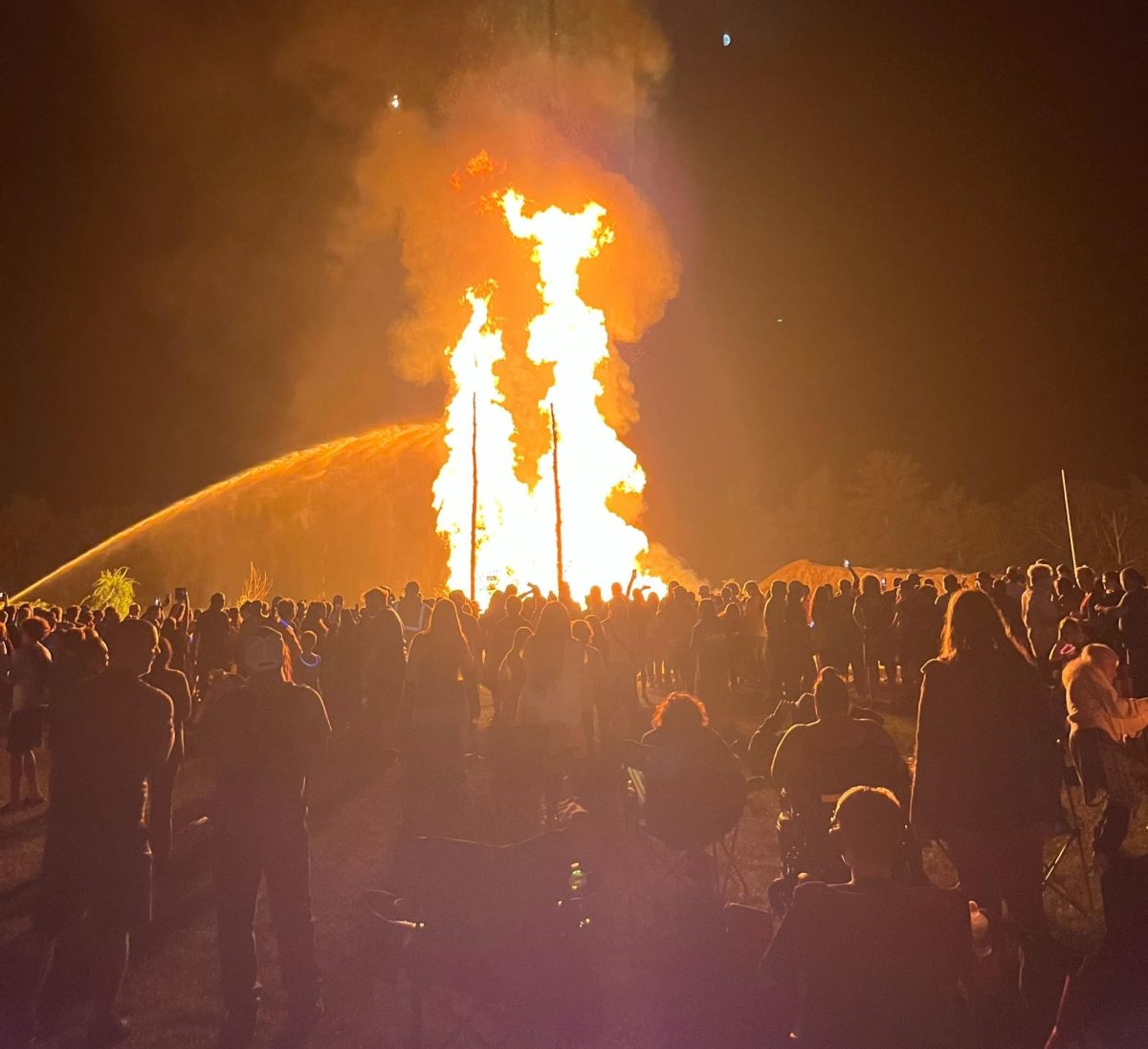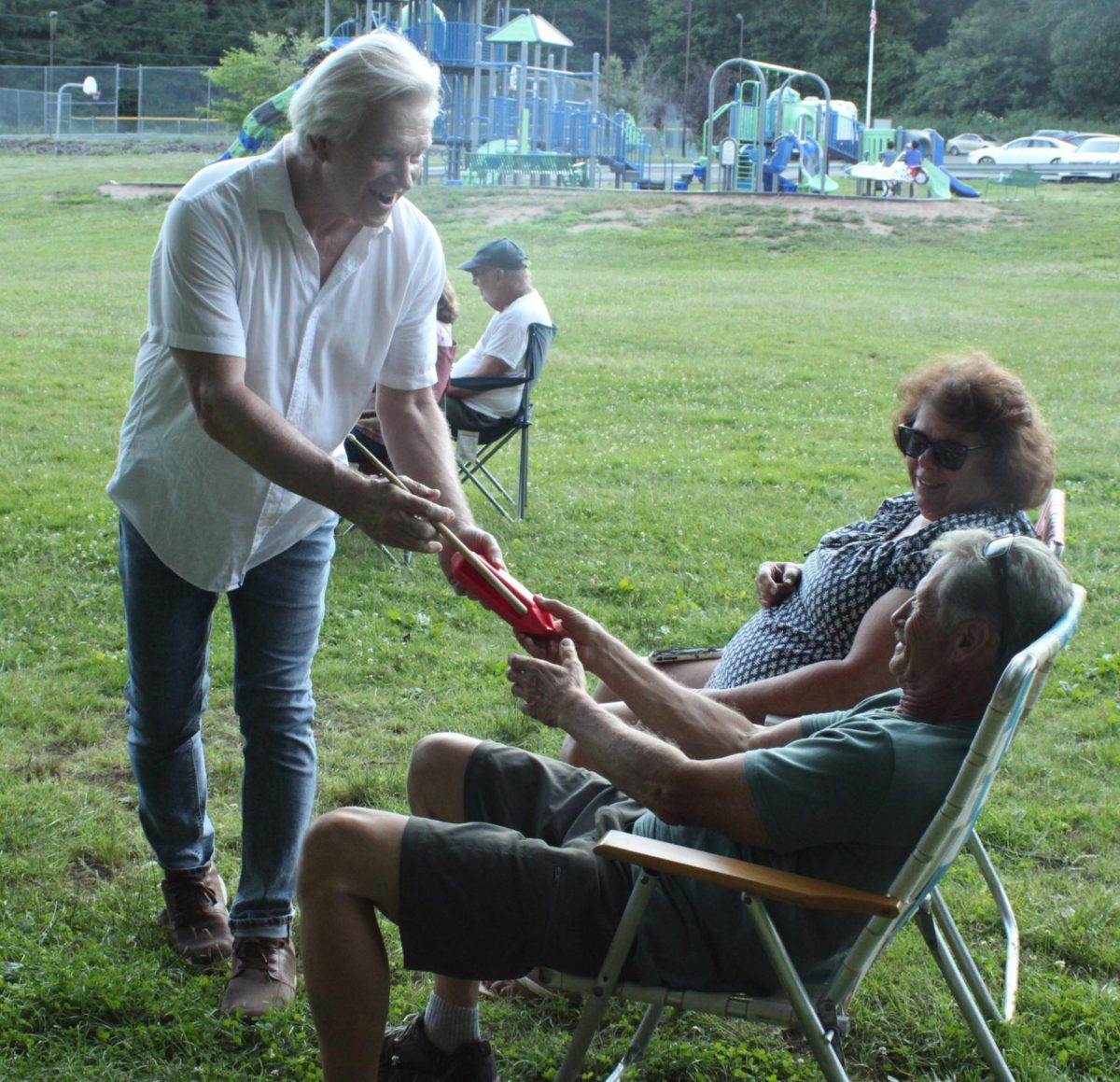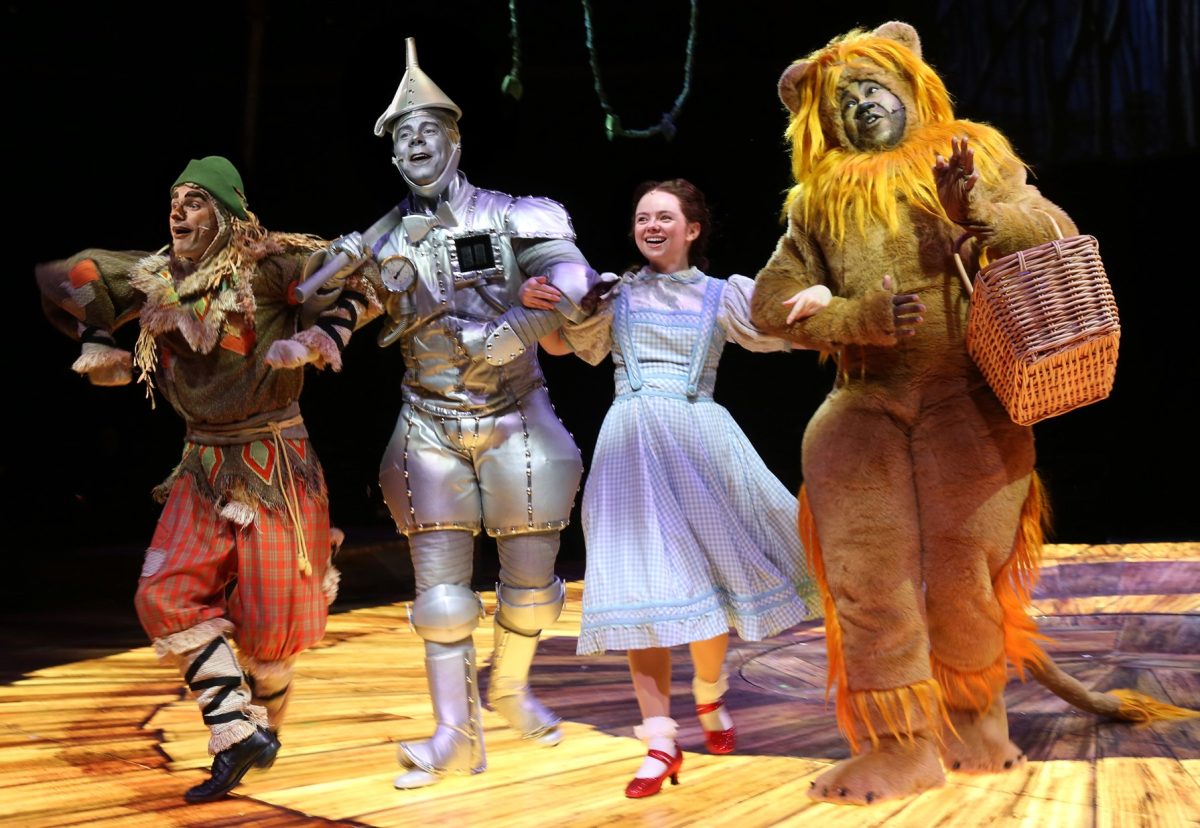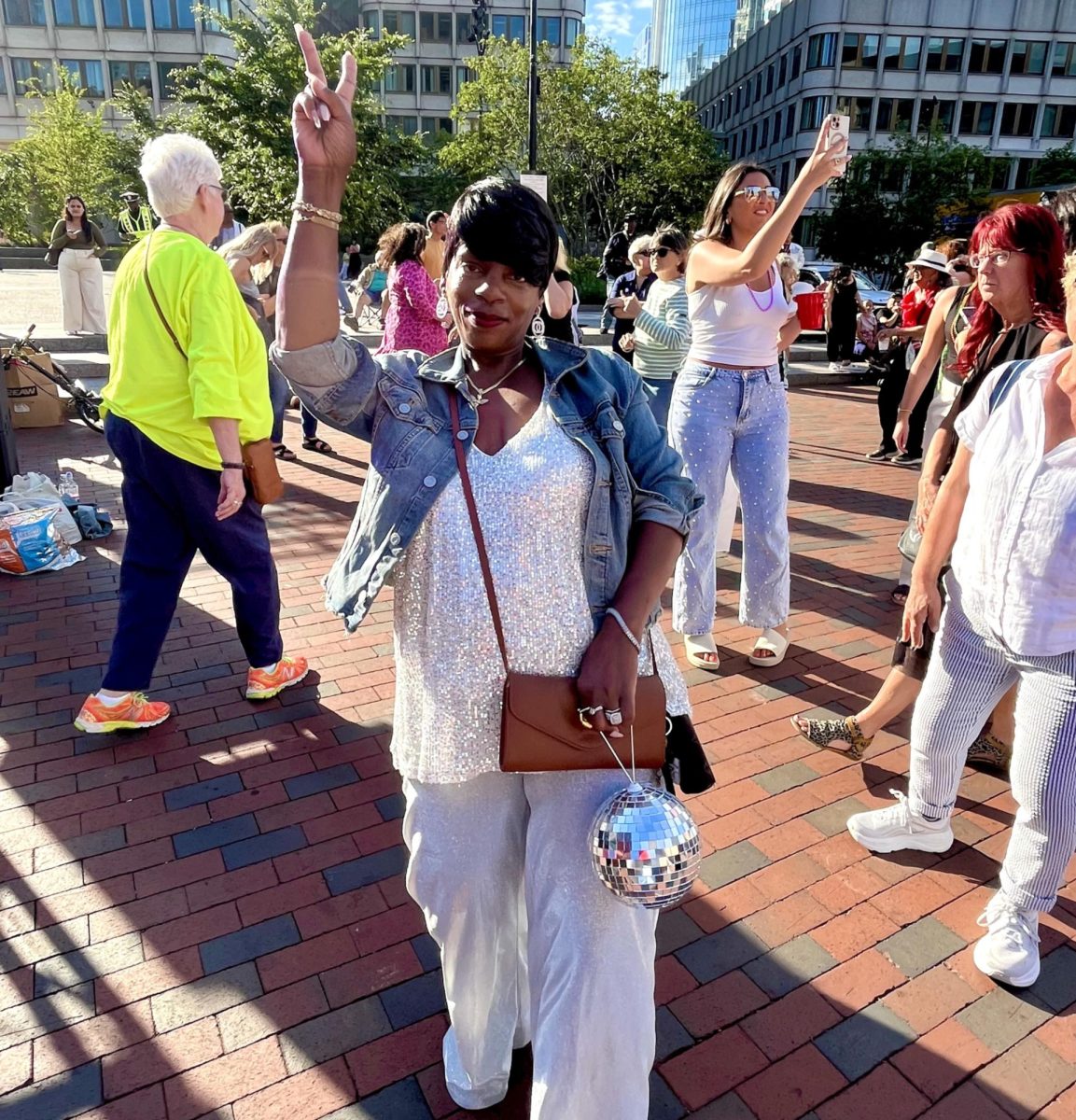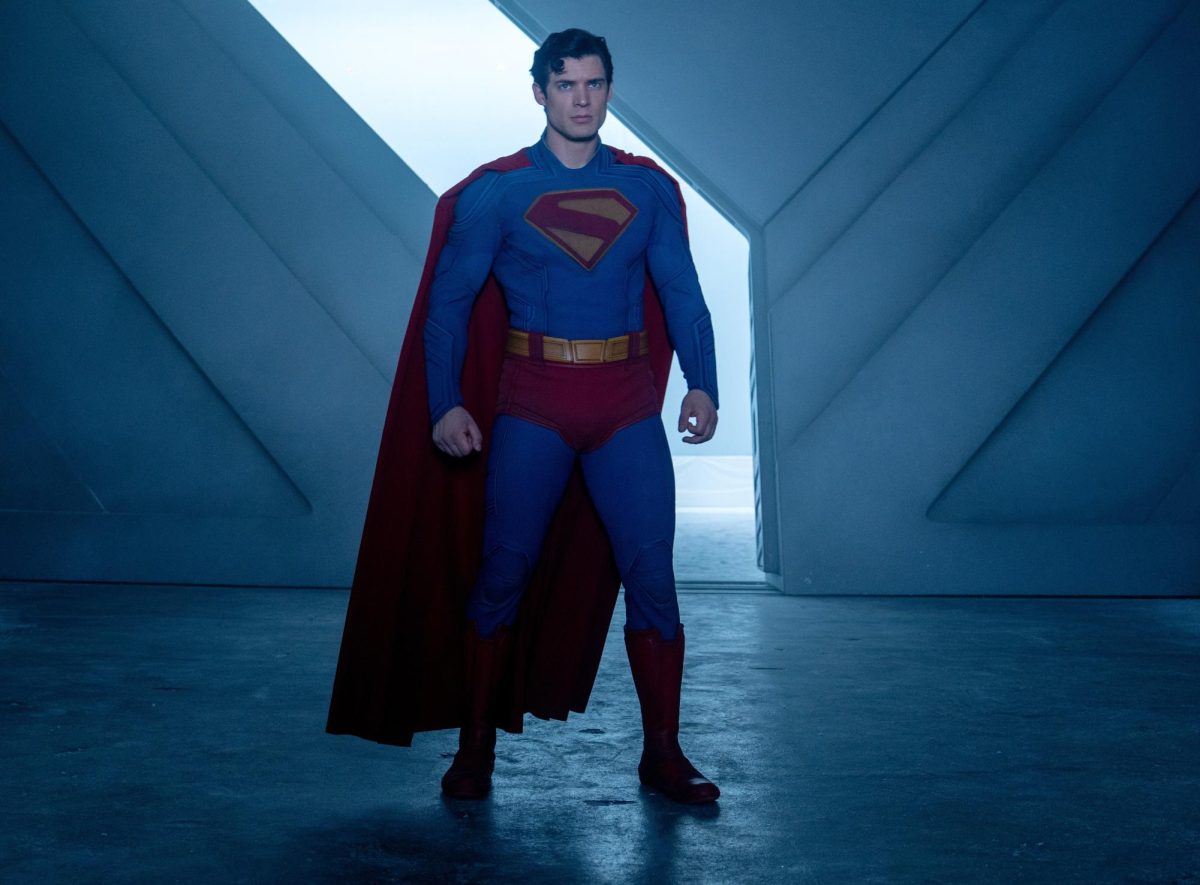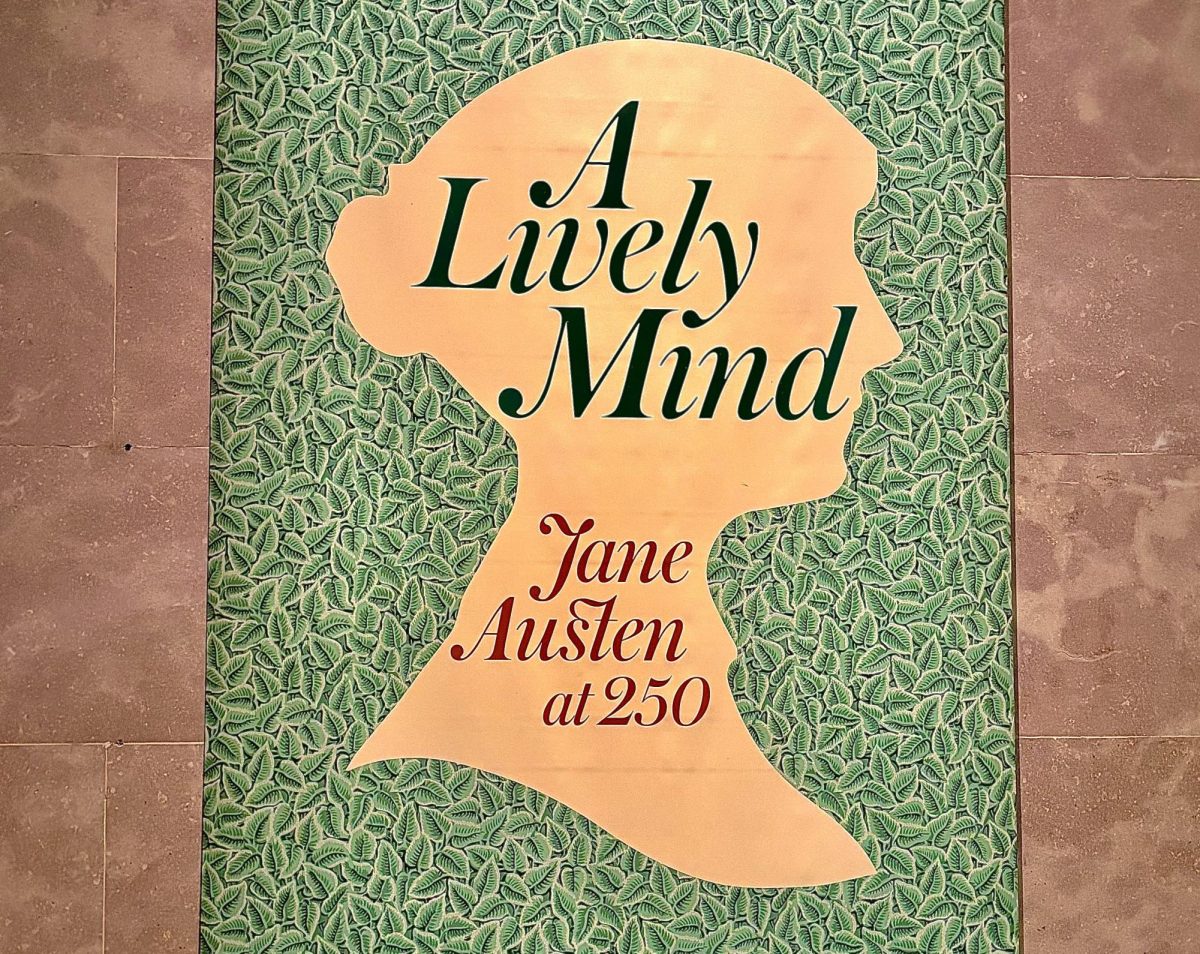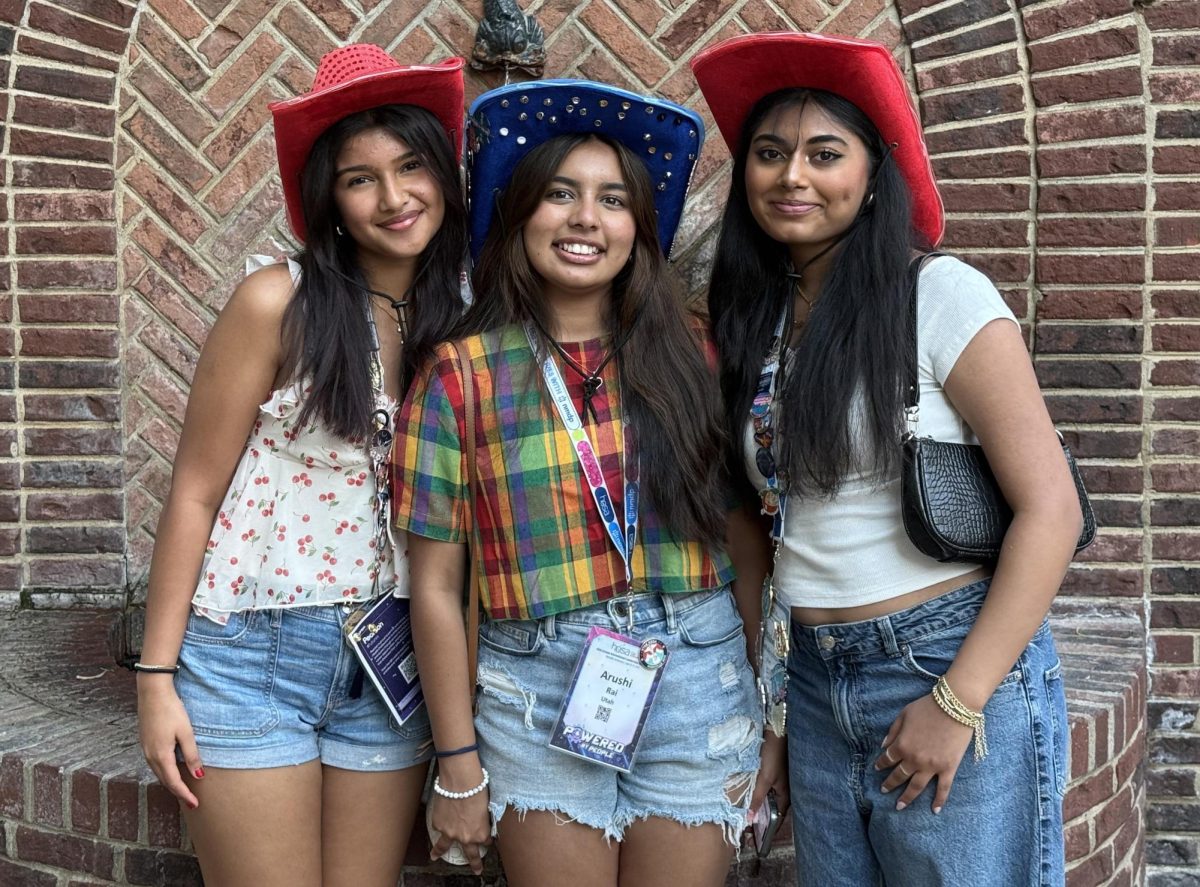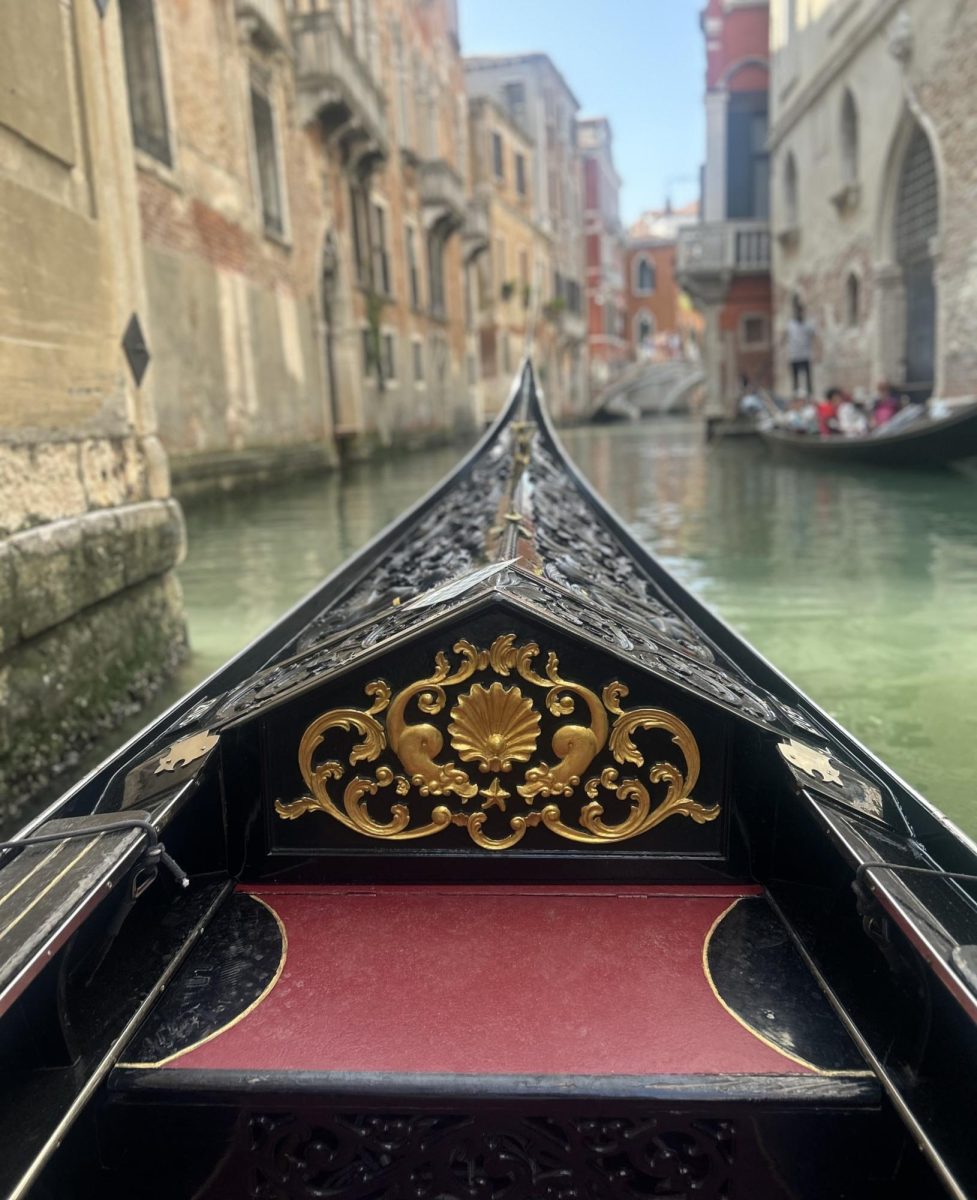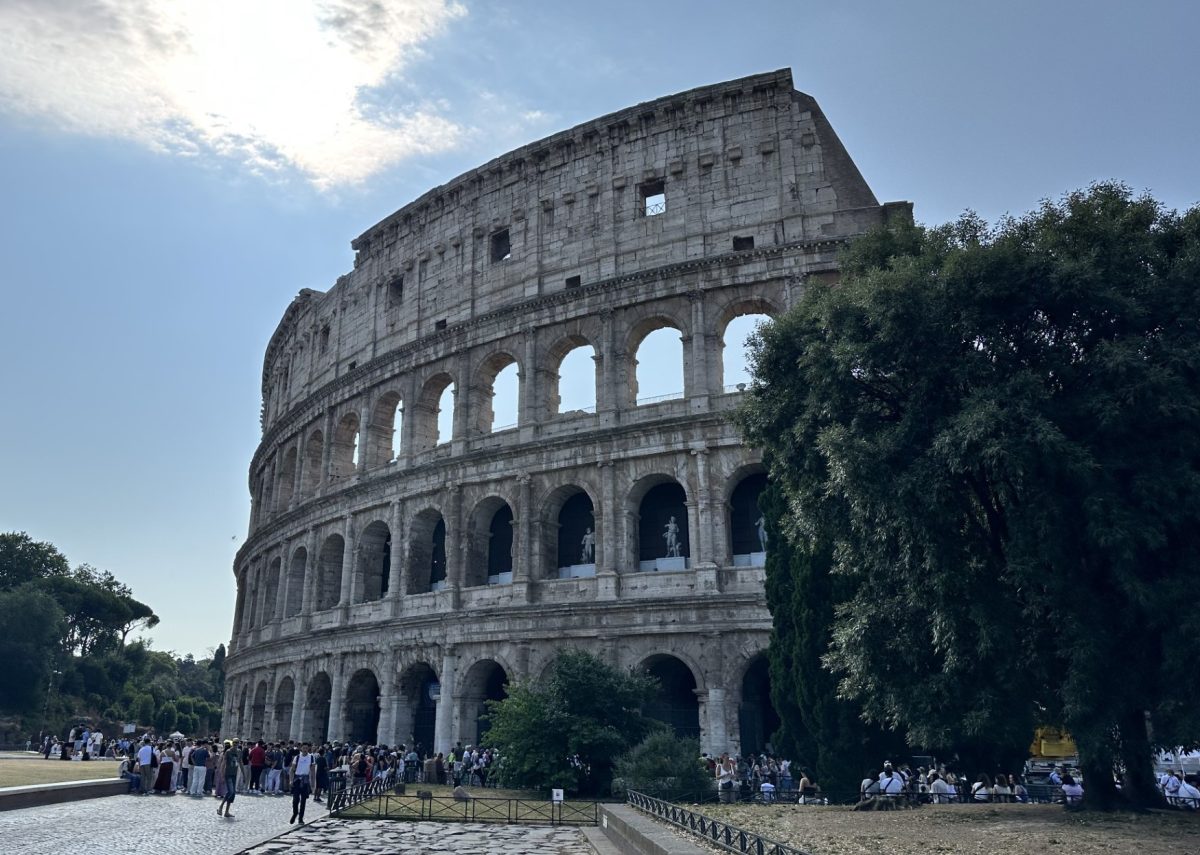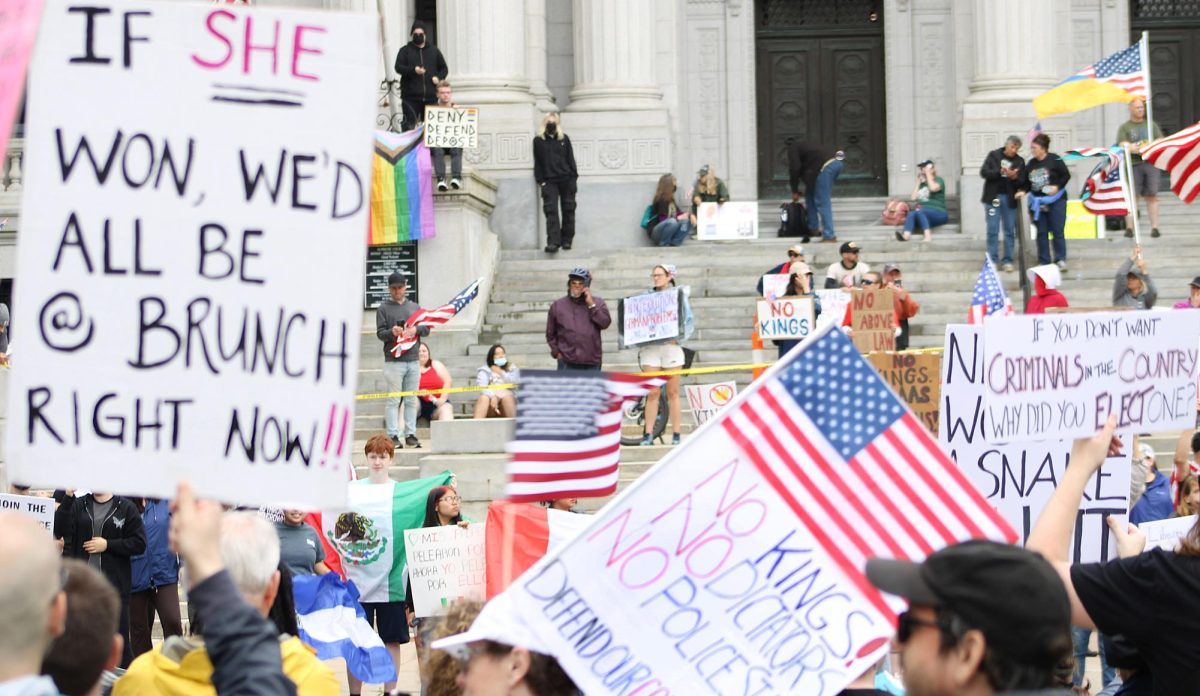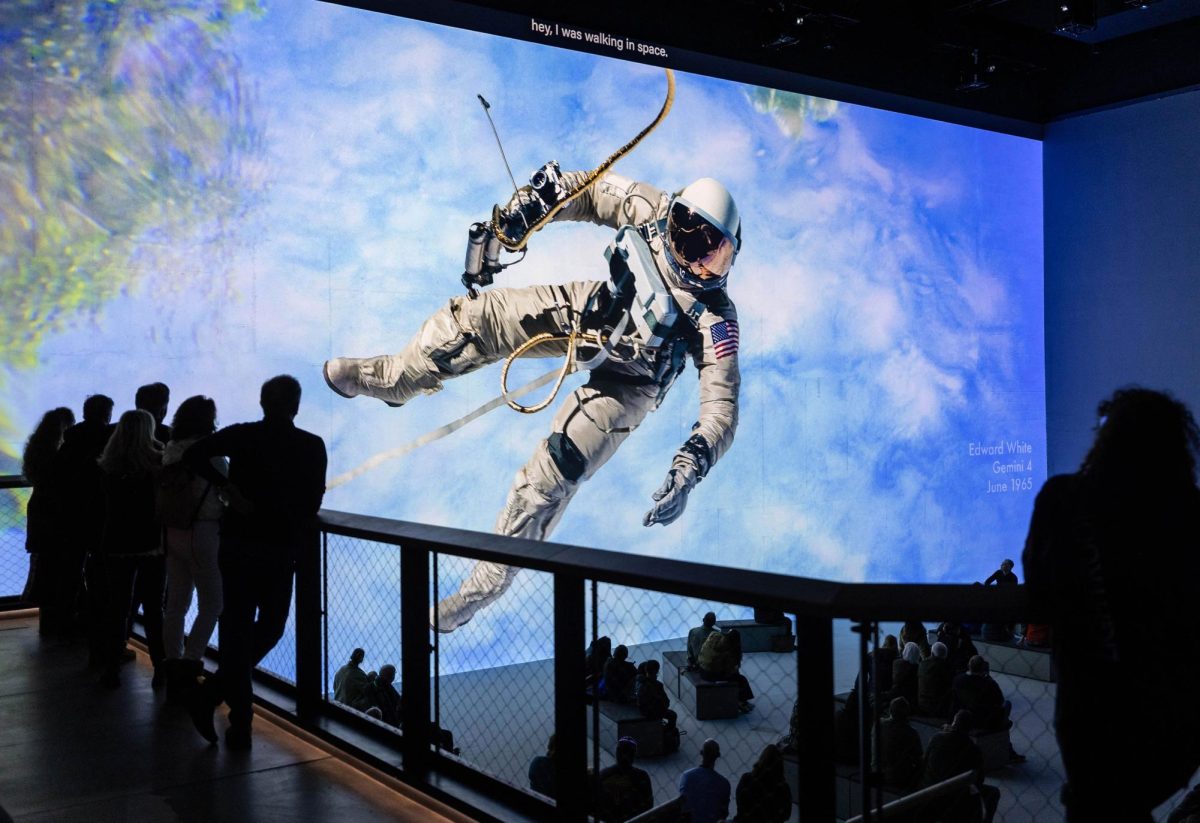Entering the world of journalism and politics
Covering the presidential primary at Andrew Yang’s N.H. headquarters
A Yang supporter holds a sign during the supporter rally in Manchester on Tuesday, February 12, 2020.
February 12, 2020
On Tuesday, Feb. 11, I had driven up to Manchester with a press pass in hand to enter the world of politics. Having only seen political events on TV, I had expected vicious arguments and screaming over current issues. However, everyone was smiling and having fun.
The first thing that hit me was how friendly everyone was. People were more than happy to discuss their hopes for the election and the future of the country. At 7 p.m., the energy in the Puritan Conference room was infectious. Everyone seemed united by curiosity and concern over who the Democratic candidate would be. Some were seated, but most were standing. Many journalists worked on the floor, rapidly typing into their laptops.
At 8 p.m., Yang was announced and came into the crowded room. Cameras were flashing as he headed to the stage with his wife Evelyn. The presidential race I went to cover took an unexpected turn as Andrew Yang announced he was dropping out.
Yang gave a brief speech, saying he worked hard, but had to cancel his campaign. He said, “I’m the math guy and it is clear tonight from the numbers that we are not going to win this race.” The crowd’s reaction was stunned, but not super surprised as Yang had not been doing that great in the polls.
The mood in the room switched to somber and some people were crying. But then it very quickly turned to a spirit of determination to take the values Yang had and move forward with them.
One of the signs in the campaign was “Not left, not right, but forward.” That statement seemed to echo the crowd’s resolve to just continue moving forward and not spend too much time grieving over the lost time and money put into Yang’s campaign. Instead, the crowd’s focus was to keep Yang’s ideas and economic policies alive and move forward.
After his speech, Yang’s wife Evelyn greeted everyone with a smile as she signed posters and snapped selfies. I couldn’t imagine how much energy that took, treating hundreds of people as graciously and elegantly as she did for the months. Yet, the most incredible part of the evening was not meeting Yang’s wife, hearing the polling results, or seeing the famous politicians. The most incredible part was all the journalists.
As soon as Yang had finished speaking, the journalists would be on their phones and laptops; emailing, texting, and writing articles. I had never seen any working in person before, and certainly not so many in one place. Sitting on the floor and balancing silver laptops, they were off to the side and typing frantically.
One reporter, Matt Stevens of the “New York Times,” said that he had flown from California just to write an article. That blew my mind, and suddenly my two-hour drive up to NH seemed significantly shorter.
Seeing the journalists chatting and laughing together as they informed the country about what was happening in Manchester felt like a place where I wanted to belong.
The journalists walked around, interviewed people and held big microphones. Some had whole sound systems strapped to their hips.
Although it was intimidating to cover such an important event because I knew it would be read by people beyond my high school audience, it was also really awesome. Being at this event showed me the process of journalism, which I had never seen so close before. It showed me all the time and work that goes into just writing a few paragraphs for the public to read. And it fueled my passion for journalism even more.
–Feb. 12, 2020–

